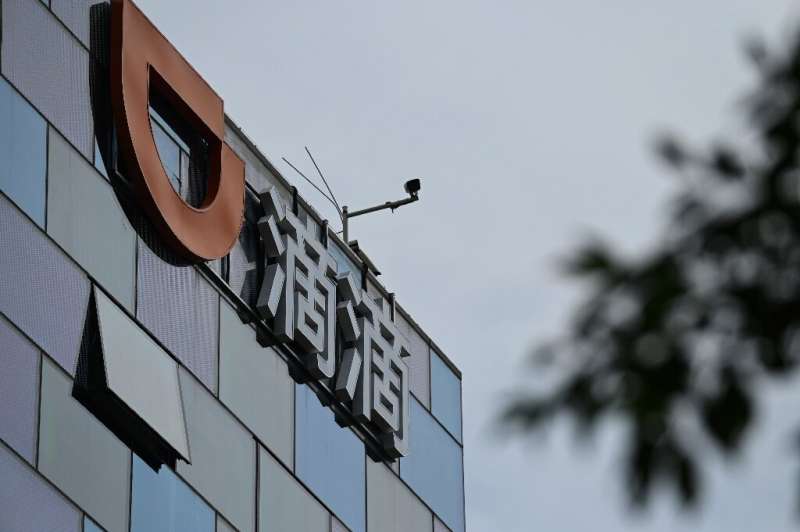Didi's decision to go ahead with the US listing has been seen as a challenge to Beijing.
Chinese regulators could hit ride-hailing giant Didi Chuxing with a more severe punishment than Alibaba's record fine, just weeks after its contentious New York initial public offering, a report said.
Despite pushback from China against the move, Didi on June 30 went ahead with its debut in New York, surging 10 percent. However, just days later Beijing announced a probe into the company citing cybersecurity concerns, and ordered its app be removed from stores.
The move sent the firm's shares plummeting and raised concerns about its business outlook.
And its problems got worse earlier this month when officials from seven departments, including the ministry of public security, were sent to the firm for on-site cybersecurity investigations.
Didi's decision to go public despite Beijing's displeasure has been seen as a challenge to the leadership, Bloomberg News reported Thursday, citing people familiar with the matter.
Regulators are now considering potential punishments that could include a huge fine, suspension of certain operations, or the introduction of a state-owned investor, the report added.
The reprimand could even force a delisting or withdrawal of Didi's US shares, it added.
The people said they expected Beijing to impose harsher sanctions on Didi than it did on Alibaba.
Regulators in April hit e-commerce titan Alibaba with a record $2.78 billion fine over practices deemed to be an abuse of its dominant market position, and have since expanded their clampdown to other companies.
Didi's shares closed 11 percent down in New York on Thursday and are now almost 30 percent off their IPO price.
China's regulators generally supported the idea of an IPO, but had expressed concerns about Didi's data security practices, according to Bloomberg.
Officials had urged Didi to ensure the security of its data before proceeding in the United States, or to shift the listing to Hong Kong or the mainland instead.
China has launched investigations into several other US-listed Chinese tech companies as it beefs up its network security regime and tries to rein in some of its massively influential and popular tech apps.
© 2021 AFP
























